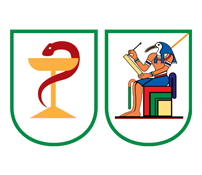Subject Area
Pharmacology and Clinical Pharmacy
Abstract
Background: An elevated heart rate is a major risk factor for cardiovascular mortality and morbidity. This study aims to evaluate the beneficial effect of heart rate reduction of oral ivabradine in patients presenting with non ST-segment elevation myocardial infarction (NSTEMI) during acute stage post percutaneous coronary intervention. Results: A total of 100 patients admitted to the emergency department, National Heart Institute, Cairo, Egypt, were randomized into two groups as follows: Group A: 50 patients with NSTEMI treated with ivabradine (5 mg twice daily) in addition to the conventional treatment; Group B: 50 patients with NSTEMI treated with the conventional treatment only. Demographic data, detailed history, clinical examination, chest pain onset, blood pressure, heart rate (HR), temperature and respiratory rate, electrocardiogram (ECG) as well as echocardiography and laboratory investigations were recorded. Patients were monitored for a period of 3e5 days (acute stage). There was a significant difference between both groups regarding reduction of heart rate on discharge in patients presenting with NSTEMI (P < 0.05). However, there was no significant differences in mortality, heart failure (HF), cardiogenic shock, arrhythmia and any mechanical complications in the acute stage. Conclusion: Ivabradine significantly reduced heart rate in patients with NSTEMI without affecting blood pressure or hemodynamics; however, this did not show a significant impact on major adverse cardiac events (MACE) during shortterm follow up in the Coronary Care Unit (CCU) (Clinicaltrials.gov NCT04285736).
Recommended Citation
Ahmed, Manar M.; Abbassi, Maggie M.; Shaaban, Gamal; and Farid, Samar F.
(2021)
"The Efficacy of Oral Ivabradine in Acute Phase in Non ST-segment Elevation Myocardial Infarction (NSTEMI) Post PCI: A Pilot Study,"
Bulletin of Faculty of Pharmacy Cairo University: Vol. 59
:
Iss.
1
, Article 5.
Available at: https://doi.org/10.54634/2090-9101.1024
Creative Commons License

This work is licensed under a Creative Commons Attribution-NonCommercial-No Derivative Works 4.0 International License.










Follow us: